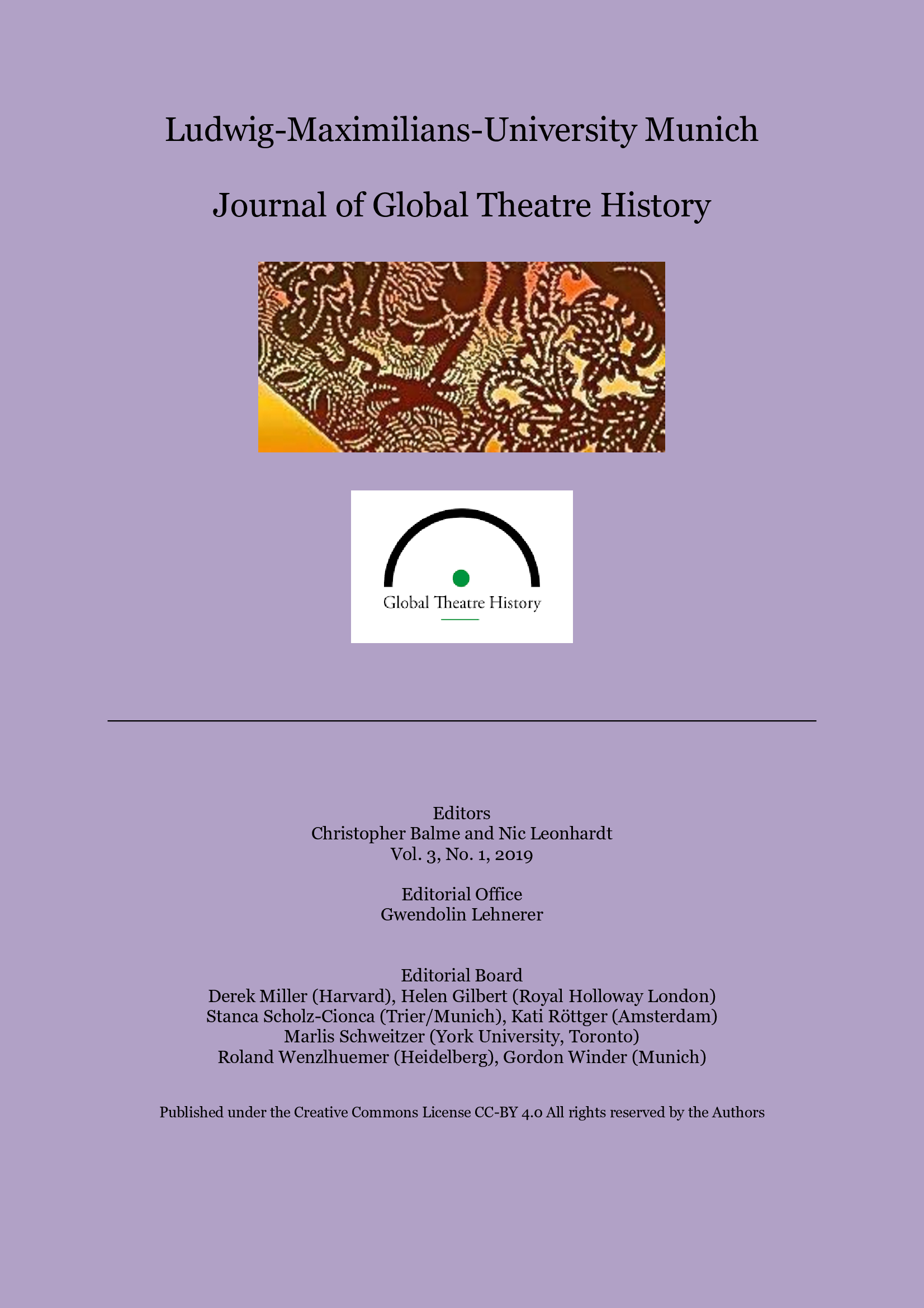Imaginary Theatre Professionalising Theatre in the Levant 1940-1990
DOI:
https://doi.org/10.5282/gthj/5106Abstract
This paper examines theatre education in the Levant, i.e. Syria, Lebanon, Iraq, Jordan and Palestine, between late 1940s and early 1990s. As a relatively new phenomenon in the region, Western-style theatre has always sought, but not always found, political, religious, social and artistic recognition. In addition to institutional and “professional” theatre initiatives, this era also witnessed the academic approaches to theatre in the region. Introducing theatre to the Levant was dependent on wealthy citizens who afforded trips to Europe and returned to spread theatre in their cities. Later in the 1970s,
and influenced by Brechtian Epic Theatre, Social Realism and the Theatre of the Absurd, governmental and academic theatre practices and literature rebelled against the existing theatre models, including the theatre makers that were glorified as national symbols. It is argued that theatre makers and theatre institutions in the Levant adopted an ideal description of theatre that was hardly recognised locally. Associating theatre to noble issues in order to promote “serious theatre,” lessened the credibility of local experiences. The dependence on socialist and nationalist ideologies assisted in legitimising theatre in the region, but simultaneously, idealising theatre separated this new art from the existing practices, and consequently mystified it in the region.
Downloads
Veröffentlicht
Ausgabe
Rubrik
Lizenz
Copyright (c) 2019 Ziad Adwan

Dieses Werk steht unter der Lizenz Creative Commons Namensnennung 4.0 International.



